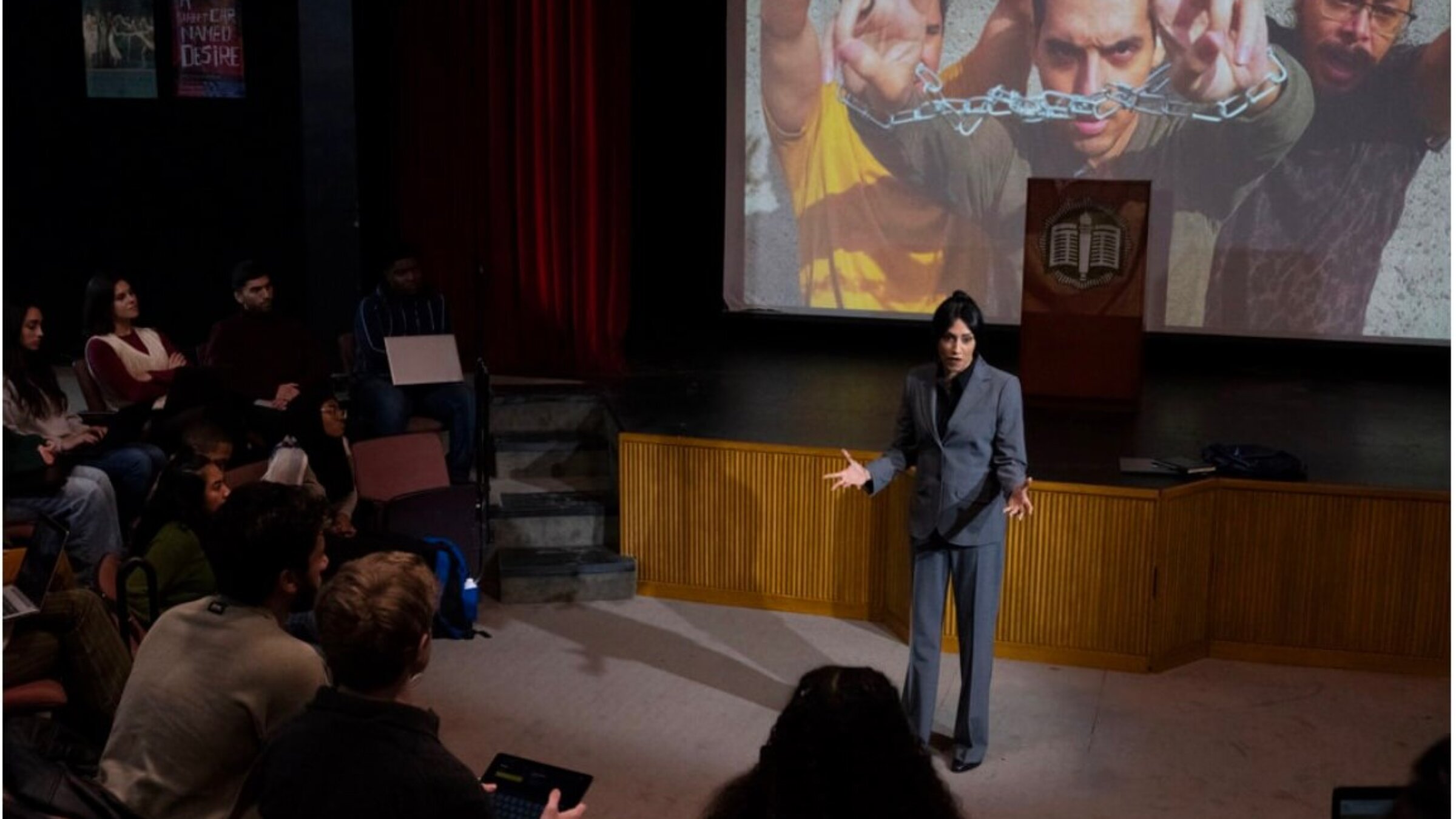The Israeli-Palestinian conflict has made it onto ‘Law & Order’
The season opener of the ripped-from-the-headlines show sure managed to cram a lot of headlines in there

Tehmina Sunny as the pro-Palestine Professor Nasser. Photo by Virginia Sherwood/NBC
During the pandemic, many critics wondered how long it would take for lockdowns to filter into the reality of TV shows. (A while, and even then, it was largely ignored; audiences wanted escapism.) Now, amid the political turmoil and campus debates around the Israel-Hamas war, we don’t need to wonder how long the news will take to arrive on network television; it took 103 days.
The season premiere of Law & Order — the original, not one of the many spin-offs — aired last night. The episode, titled “Free Expression,” manages to cram just about every major headline even tangentially related to Israel from the past few months into its hour run time.
The episode opens with the murder of the Jewish president of the fictional Hudson University, who is in the midst of being scrutinized for plagiarism. He’s stabbed in front of a Manhattan store called “Cohen’s Bagels” that a group has graffitied with blue Stars of David.
The cops find many people disgruntled about the president’s leadership. Some Jewish professors and donors felt he allowed pro-Palestinian student groups and protesters too much leeway, and criticized him for failing to release a statement condemning Hamas after the Oct. 7 attack. Pro-Palestinian students and professors, meanwhile, were mad at the president for canceling their film symposium and say he’s “a puppet of the Zionist regime.”
In case you haven’t been reading the news, that’s a reference to Harvard’s former president Claudine Gay, who stepped down amid accusations of plagiarism and criticism over her handling of Oct. 7 and its aftermath, and another to the campus controversy over repeated cancellations of on-campus screenings of Israelism, a documentary some donors and activists have accused of antisemitism.
There are also protesters ripping down hostage posters, a character who says that “from the river to the sea” is code for destroying Israel, and even a throwaway line about transgender athletes, all of which makes for about as heavy-handed an episode as you could possibly imagine.
The interesting part of the episode, however, is its own strange participation in exactly the same kind of careful line-toeing that it’s trying to criticize.
It’s clear where Dick Wolf, the series creator who co-wrote the episode, stands on the issues at hand. The pro-Palestinian protesters are presented as brainless agitators who speak in a Valley-girl whine. And — spoiler alert — one of them is the murderer, “brainwashed” by an unrepentant pro-Palestinian professor. (“She thought Oct. 7 was justified,” says one former student of hers, scoffing. “I mean I support innocent Palestinians but come on. That was a flat-out act of terror.”) The pro-Palestinian left couldn’t really come across any worse.
But lest anyone accuse the show of bias, there’s a Jewish, Zionist murderer too, who ends up shooting and killing one of the student protesters. He’s quickly dispatched by the police — he’s shot when he points the gun at a cop — which allows the show to avoid having to dig in too deeply into Jewish extremism around the war. Still, it’s important to the show that he exists; after all, in the Law & Order system, the people are represented by two separate yet equally important groups — the pro-Israel advocates, and the pro-Palestinian ones, and they’re both killers.
Law & Order is not prestige TV; it’s a basic network crime serial, albeit one that has made its name off of being at least somewhat socially relevant. People are not coming to it for biting social commentary, or to help them form their views about the war or campus debates (which is not to say it won’t influence them). It probably could have gotten away without its one, throwaway, pro-Israel bad guy.
But Law & Order, once upon a time, was kind of progressive, at least for a network crime serial. It took on issues of gender-based violence, abortion, race in policing. It was actually, tangentially, part of the same culture war that “Freedom of Expression” portrays as shallow.
So for all its depiction of today’s political battles as inane, and at times insane — the manipulative professor says, in court, that “the Jewish elite will stop at nothing in order to silence me” — Law & Order remains part of them. After all, what is TV if not culture?
A message from our CEO & publisher Rachel Fishman Feddersen
I hope you appreciated this article. Before you go, I’d like to ask you to please support the Forward’s award-winning, nonprofit journalism during this critical time.
We’ve set a goal to raise $260,000 by December 31. That’s an ambitious goal, but one that will give us the resources we need to invest in the high quality news, opinion, analysis and cultural coverage that isn’t available anywhere else.
If you feel inspired to make an impact, now is the time to give something back. Join us as a member at your most generous level.
— Rachel Fishman Feddersen, Publisher and CEO